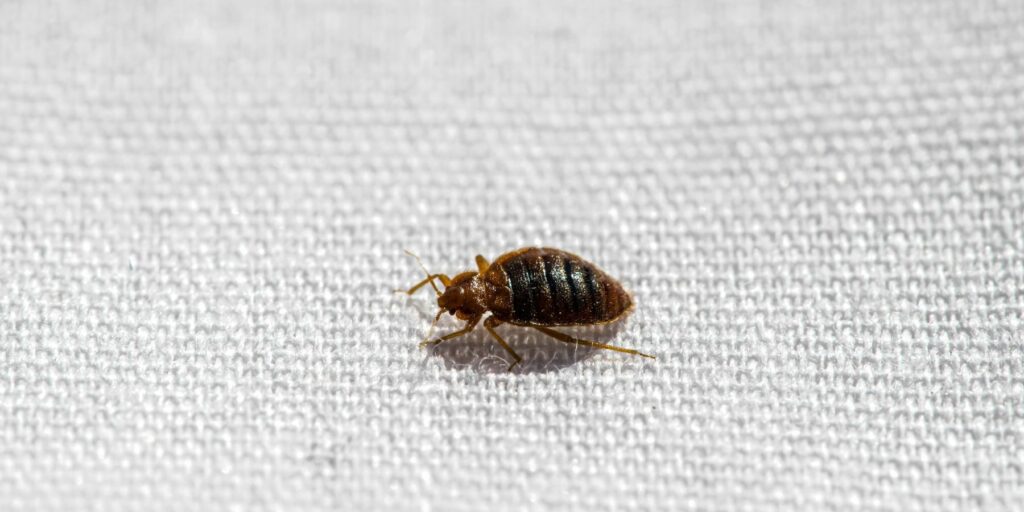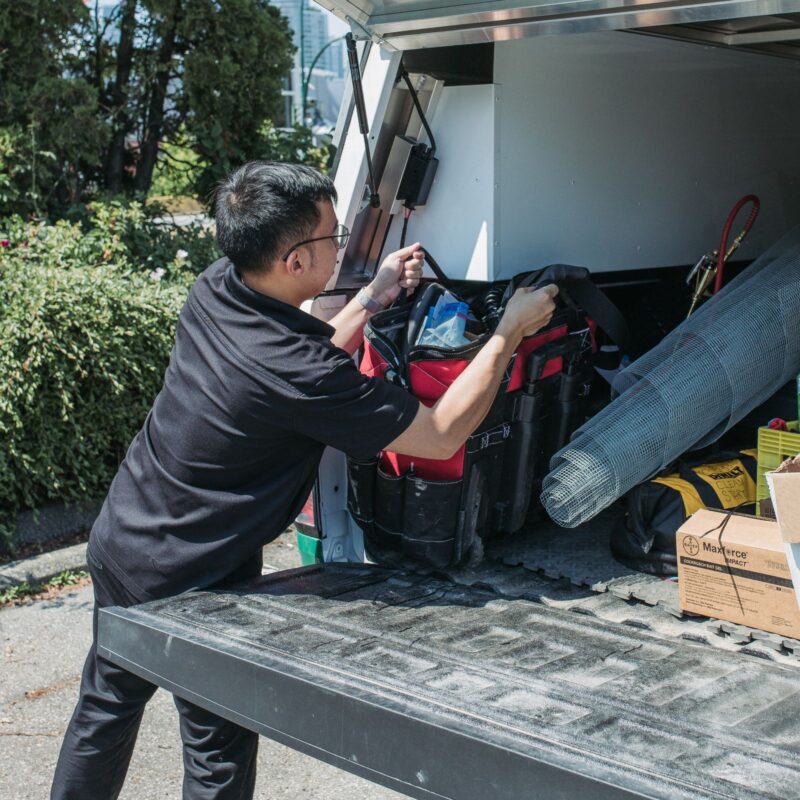What to Know About Bed Bugs When Traveling

Our friends at Pestech Pest Solutions wrote an awesome article on what to know about bed bugs when traveling. You can find the full article HERE.
When you’re getting ready to travel, pests may be the last thing on your mind. However, they’re worth preparing for, especially if you’re staying in hotels or rental homes during your trip.
Specifically, travelers often encounter bed bugs in accommodations away from home, and these pests can become a severe nuisance quickly. Unlike other pests, bed bugs can be difficult to get rid of, so it’s essential to understand how to protect against them while traveling.
Understanding and Identifying Bed Bugs
Bed bugs are reddish-brownish-colored, wingless insects that are roughly the size of an apple seed. While they’re not known to spread diseases, their bites cause allergic reactions and severe skin reactions.
These pests live in colonies that nest in crevices and cracks in all kinds of furniture, like bed frames, couch cushions and rugs. They can also live in objects near or around beds, couches or chairs. Bed bugs are nocturnal, so they only come out at night to feed, and humans are their preferred hosts.
A bed bug bite looks similar to and shares some symptoms with other insect bites and skin rashes. Look for the following signs when checking for bed bug bites:
- Inflammation: Inflamed red spots with a dark spot in the middle are a common sign of bed bug bites.
- Itchiness: If you’re experiencing an uncomfortable itchiness in a certain spot, you may have a bed bug bite.
- Sore arrangement: Bed bugs typically bite in lines or cluster formations, so look for these patterns on your body.
- Sore locations: Bed bugs typically leave bite marks on the face, hands, arms and neck.
- Different reactions: People allergic to bed bug bites will experience severe itching, which may result in blisters or hives. Others may have no reaction.
If you break out in hives or blisters, have a bad rash or the symptoms persist, seek the advice of a health care professional.
How to Recognize Bed Bug Infestations
Bed bug infestations are often linked to frequent traveling, and travelers can encounter bed bugs worldwide. People can have bed bugs on their clothes or belongings without realizing it and end up spreading them as they continue to travel. Bed bugs can exist in all forms of accommodations and transportation, such as trains, buses, hostels, motels, apartments, rooming houses and cruise ships.
Whenever you first arrive at your accommodations on a trip, complete a thorough check for a bed bug infestation. Aside from the bugs themselves, search for these signs:
- Blood: Look for blood spots on your accommodation’s furniture, blankets and bed sheets.
- Eggs: Bed bugs lay tiny, pale yellow eggs. Search for eggs and eggshells to determine whether bed bugs are present and have hatched. You can also familiarize yourself with the life cycle of bed bugs to help you identify them at any stage.
- Droppings: Bed bug droppings are small, about the size of a tiny dot.
- Skin: Bed bugs shed their skin as they grow, which closely resembles the bug itself.
Essential Bed Bug Traveling Tips
Knowing how to protect against bed bugs when traveling will ensure you don’t bring them home with you after your trip. Taking precautions like conducting bed bug checks is important, but you should also have a plan for addressing bed bugs if you discover them. These bed bug traveling tips can make your next vacation or work trip stress-free:
- Research accommodations: It’s true that bed bugs can be present anywhere, even in the most high-end hotels and resorts. That said, you’re much less likely to encounter them in well-maintained accommodations with strict cleaning policies. If you’re concerned about bed bugs before going on a trip, take the time to research where you plan to stay beforehand, noting any customer reviews that mention pests or other cleanliness issues.
- Stow luggage properly: Bed bugs prefer to hide in dark places like the cracks and crevices of beds and couches. Keep your luggage in a closet you know is free of bed bugs to ensure they can’t crawl into it.
- Choose hard surfaces at the airport: When you’re waiting to catch your flight, avoid sitting on couches or other fabric furniture in the airport. Sticking to hard surfaces like metal benches can help you avoid bed bugs that other travelers may have brought in.
- Store clothes in closets: Avoid storing your clothes in dresser drawers, especially at hotels. These are common nesting places for bed bugs, so your clothing is often safer in your luggage or in the closet.
- Avoid shared rooming spaces: If possible, book accommodations only you and cleaning staff can access during your stay. Bed bugs are much more likely in places like hostels, where many travelers come and go and sleep in the same room. Still, you can lower your risk of bed bugs and save money by staying in a hostel if you practice other prevention techniques — just be diligent about protecting yourself.
If you’re traveling and find bed bugs on your clothes, you should immediately contain those clothes in a plastic bag and wash and dry them with the highest temperature settings — long enough periods of heat exposure kill bed bugs. In cases where bed bugs have infested your luggage, your best option is to buy a new suitcase. Then, do what you can to change your accommodations so you can avoid further exposure.
When you get home, unpack your luggage outside so you can avoid potentially bringing bed bugs inside. Put your clothes in a plastic bag and take them inside so you can wash them in hot water. Inspect your luggage for any signs of bed bugs, too, and you should be able to avoid bringing these pests into your living space.
Get the Bugs out of Your Bed With Pestech
When bed bugs find a way into your home, you need a professional pest solution service that can thoroughly remove the infestation. CleanStart Pest Control Technicians are trained to find your bed bug problem, use high-quality and safe chemicals to eliminate them and take measures to prevent another infestation.
Whether you’ve accidentally brought bed bugs home from your travels or they’ve come from somewhere else, we can help you regain control of your home. To find out more, contact us today, and you’ll receive a response within 24 hours!


